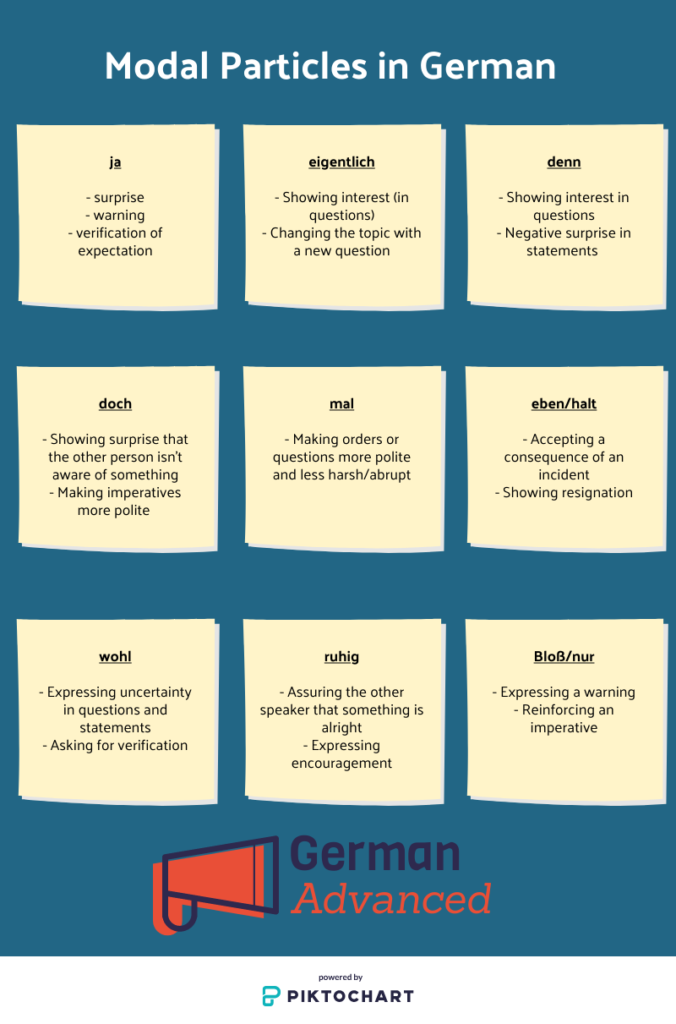So let’s say that you’ve been learning German for some time now; you may have attended some classes, studied vocabulary industriously and know your way around the ‘Akkusativ’ and ‘Dativ’. The best part? You can probably follow most conversations and don’t feel like an alien trying to grasp simple words. By now you will have noticed some random words that keep popping up in said conversations and that don’t really seem to have a point to them. All these random words like ‘eigentlich, doch, mal, ja, denn’ have kept you flabbergasted. They are called modal particles and are a game-changer in speaking German. We always tell our students that modal particles in German are one of the best things to practice if you want to sound more like a native speaker because Germans use them all. the. time.
So what are they?
Modal particles, also called interjections, are used to express what the speaker is thinking or their opinion without using explanatory words. This means that they can make a statement stronger or weaker, they can be used to show genuine interest or to express politeness. Although they have no grammatical function (like let’s say a verb), they add flavour to the language and make you much more approachable as a speaker. German, just like Dutch or Japanese, is a modal particle – heavy language, but they are not unheard of in English either. Take the example of ‘just‘ in the following sentence:
“Just have a look yourself“
In the structure of the sentence it makes perfect sense to use the word just, but it is neither necessary for the meaning of the sentence nor does it fulfil any grammatical requirement. It’s one of those things that most native speakers can’t quite out their finger on – the sentence wouldn’t be wrong without just, but the word adds some deeper element to it.
A better explanation in English
Whilst the English language admittedly lacks the depth of modal particles compared to German, it does have something that is similarly gratuitous yet fundamental. At the end of many sentences English speakers will use tag questions to verify something that they already know to be true, for example “the weather today is lovely, isn’t it?”. Although not strictly needed to express the nature of the statement, it is commonly used in spoken language to keep the conversation flowing and to appear more friendly, more polite. Albeit this structure being fundamentally different to modal particles, it shows that every language has “unnecessary” quirks that make it more alive.
What will happen if I don’t use them?
Nothing, really. Every fluent speaker of German will understand you even if you don’t use modal particles. Chances are, they won’t even notice. However, the overall evaluation of your German skills will be much higher if you use them, because:
- Your statements will be much more nuanced
- It becomes easier to show interest without asking more questions
- You will sound more polite in many instances
- You will notice if a German is trying to tell you something without really saying it
As you can see, it’s really about fine-tuning your language skills. Also, reason number 3 is probably the most important one: German is sometimes described as rude and harsh, but modal particles really help overcome this issue.
A list
In the coming weeks you’ll find a few in-depth articles about the different particles or groups of particles, but here is a general list to start with (or if you already know most of them anyway).


